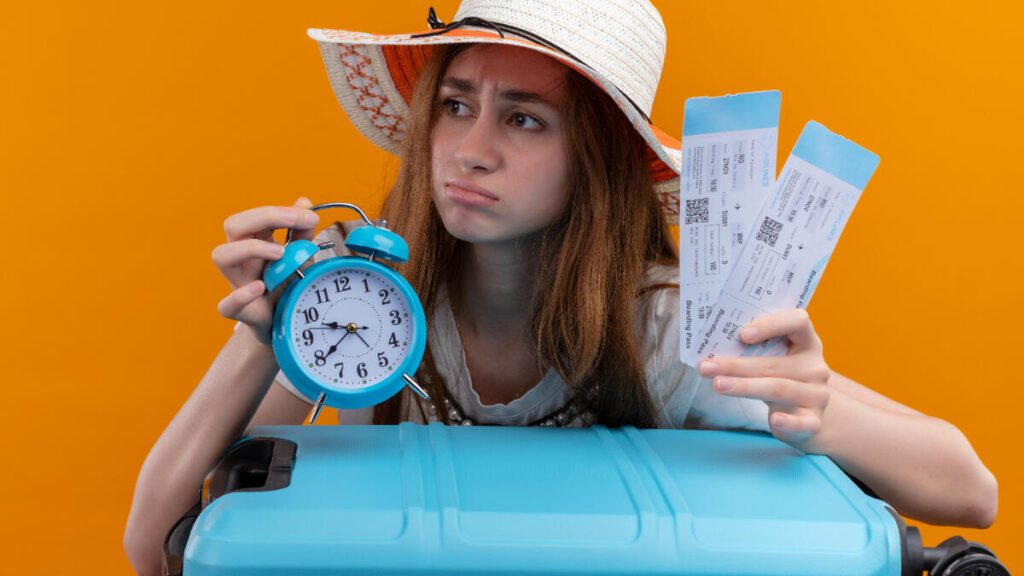Introduction
Travel lovers, budget-savvy explorers, and frequent flyers prepare for a big change. Travel Costs Expected to Rise in 2025, which could completely transform how we plan and experience travel. Rising fuel prices, global inflation, and increased post-pandemic demand are driving up expenses across flights, accommodations, dining, and more. But it’s not all bad news! With the right strategies and insights, you can still make the most of your adventures without breaking the bank.
- Introduction
- The Global Economic Landscape: What's Changing?
- Airline Ticket Prices: A Closer Look
- Accommodation Costs on the Rise
- Why Dining Out Might Burn a Hole in Your Pocket
- Transportation Costs Beyond Air Travel
- The Role of Technology in Travel Cost Adjustments
- Strategies to Combat Rising Travel Costs
- The Future of Sustainable Travel Cost
- Tips for Budget-Friendly Travel in 2025
- How to Stay Ahead of Changing Costs
- Real-Life Anecdotes: Travelers Share Their Stories
- The Silver Lining: Why Rising Costs Could Be a Good Thing
- Conclusion
In this article, we’ll explore the factors behind these price hikes, their impact on your travel plans, and smart tips to help you save money while enjoying meaningful journeys. Ready to dive in? Let’s get started!
The Global Economic Landscape: What’s Changing?
Inflation and Its Ripple Effect
Inflation has been rising globally, affecting nearly every sector, including travel cost. When the cost of goods and services increases, industries like hospitality, airlines, and tourism respond by raising their prices. For example, a 10% increase in fuel costs can impact airfare by up to 4%. Inflation isn’t just a buzzword—it’s a reality, making vacations more expensive than ever.
Rising Fuel Prices
Fuel prices significantly contribute to why Travel Costs Are Expected to Rise. Higher energy costs have a cascading effect on travel, from powering airplanes to fueling car rentals. According to recent data, fuel prices are set to climb by 15% next year, leaving airlines with little choice but to pass these costs onto travelers. Have you ever wondered why that flight to Hawaii suddenly costs 30% more? Blame it on the oil market!
Airline Ticket Prices: A Closer Look
Factors Driving Fare Increases
Airfare has always been a significant chunk of travel cost budgets, and in 2025, it’s set to grow even bigger. Rising operational costs, including staffing and maintenance, contribute to the trend. Additionally, new environmental taxes aimed at reducing carbon footprints mean airlines are adjusting their pricing strategies. Remember the good old days of $50 flights? They might be a thing of the past.
Hidden Fees You Need to Watch Out For
Gone are the days when a ticket price covered everything. In 2025, expect to pay for extras like seat selection, baggage, and carry-ons. These hidden airline fees are becoming a common way for airlines to offset rising operational costs. Tip: Always read the fine print before making a reservation to prevent unpleasant surprises at the airport.
Accommodation Costs on the Rise
Hotel Pricing Trends
Hotels are not immune to inflation. As travel demand grows, hoteliers raise rates to capitalize on peak seasons. In 2025, you might see up to 20% price hikes in popular destinations like Paris, Bali, and New York. Luxury stays are getting pricier, but budget accommodations must be more safe from the upward trend.
The Surge in Alternative Accommodation Costs
Think Airbnb is the cheaper alternative? Think again. Service fees and cleaning charges have steadily increased, making vacation rentals less budget-friendly. A recent report showed that a standard Airbnb in a significant city now costs as much as a mid-range hotel. Suddenly, that “homey experience” doesn’t seem as appealing.
Why Dining Out Might Burn a Hole in Your Pocket
Increasing Food Prices Globally
Dining out while traveling is one of life’s pleasures, but it’s also becoming costly. Global food prices are climbing due to supply chain disruptions and climate change. A simple meal at a local restaurant in tourist-heavy areas could set you back 25% more than it would today. Even street food, once a budget-friendly option, is seeing price spikes.
Impact of Tourist Demand on Local Economies
High tourist demand in popular areas often leads to inflated prices. Local vendors know tourists are willing to pay more, which drives up costs for visitors and locals. This phenomenon, known as tourist inflation, is becoming more widespread as global travel rebounds post-pandemic.
Transportation Costs Beyond Air Travel
Car Rentals and Fuel Prices
If you’re planning a road trip in 2025, be prepared for sticker shock. Car rental companies are increasing their rates due to higher demand and limited vehicle availability. Add skyrocketing fuel prices into the mix, and your cross-country adventure could cost double what it did a few years ago.
Public Transportation Fare Hikes
Public transportation, traditionally a cost-effective way to explore a destination, is also seeing fare increases. Cities like London and Tokyo are revising fare structures to cope with rising operational expenses. While cheaper than car renting, these hikes are worth considering your budget.
The Role of Technology in Travel Cost Adjustments
Dynamic Pricing Models
Have you ever noticed how prices on travel booking platforms change within minutes? Dynamic pricing is becoming more sophisticated, and AI algorithms adjust costs based on demand and user behavior. Procrastination can lead to paying significantly more, especially for last-minute bookings.
How Apps and Platforms Can Help Save
On the flip side, technology also offers ways to save. Price-tracking apps, discount platforms, and reward programs can help mitigate rising travel cost. Tools like Skyscanner and Hopper predict price trends, allowing you to book at the optimal time. Staying tech-savvy is more crucial than ever.
Strategies to Combat Rising Travel Costs
Booking Early vs. Last-Minute Deals
When Travel Costs Are Expected to Rise, timing becomes everything. Booking early often locks in lower prices, especially for flights and hotels. Conversely, last-minute travel deals can yield savings, but only if you’re flexible with your dates and destinations.
Choosing Off-Peak Travel Seasons
Traveling during peak seasons like summer or holidays strains your wallet. Opting for off-peak seasons is a surefire way to avoid the brunt of rising travel costs. For instance, visiting Europe in late winter instead of summer can save you 30% or more on flights and accommodations.
The Future of Sustainable Travel Cost
Eco-Friendly Options May Cost More
Sustainability in travel is no longer just a buzzword; it’s becoming the norm. Airlines invest in biofuels and carbon offset programs, which passengers often absorb in ticket prices. Similarly, eco-friendly accommodations like eco-lodges and green-certified hotels come at a premium due to their use of renewable energy and sustainable materials. While these options may cost more upfront, they represent a commitment to preserving the very destinations we cherish.
Why It’s Worth the Investment
Investing in sustainable travel is a win-win for both travelers and destinations. For example, opting for an eco-tourism package often ensures your money directly supports conservation efforts and local communities. As the trend grows, sustainable travel becomes a responsibility rather than a choice, safeguarding natural wonders for future generations.
Tips for Budget-Friendly Travel in 2025
Using Travel Credit Cards Wisely
The right travel credit card can make a huge difference in combatting rising costs. These cards allow you to earn points on everyday purchases, which can be redeemable for flights, hotel stays, or cash back. For example, cards like Chase Sapphire Reserve or Capital One Venture offer travel perks that offset expenses like airport lounge access and free checked bags.
Leveraging Loyalty Programs
Joining loyalty programs for airlines, hotels, or even dining can significantly reduce costs. These programs often reward repeat customers with points redeemable for free stays, discounted flights, or upgrades. Programs like Hilton Honors and Delta SkyMiles are well-known for delivering exceptional value to their members.
How to Stay Ahead of Changing Costs
Tracking Price Trends with Tools
With Travel Costs Expected to Rise, tools like Google Flights or Kayak Price Alerts are invaluable. These platforms send notifications about fare increases or drops, enabling smarter booking decisions. Consistently using these tools ensures you don’t overpay.
Following News and Economic Updates
Staying informed about global economic trends, like oil price changes or currency fluctuations, helps you anticipate cost changes. Resources like TravelPulse or Skift provide timely updates that can guide your planning.
Real-Life Anecdotes: Travelers Share Their Stories
Real-life experiences paint a vivid picture of how rising costs impact travelers. Take Mark, a digital nomad who saved $1,000 on airfare by booking six months early with the help of a price prediction app. Meanwhile, Emily and her family switched from luxury hotels to mid-range rentals during their Southeast Asia trip, using Agoda to find deals. These stories show how minor adjustments can lead to significant savings.
The Silver Lining: Why Rising Costs Could Be a Good Thing
Boosting Local Economies
Higher travel costs often translate into greater economic benefits for local communities. Tourists paying premium prices for authentic experiences, like guided tours or hand-crafted souvenirs, directly support artisans and small businesses. This type of spending can improve the quality of life in popular tourist regions.
Encouraging Responsible Tourism
When travel becomes more expensive, over-tourism naturally decreases. Destinations like Venice or Machu Picchu, which face environmental degradation due to excessive tourist numbers, benefit from having fewer visitors. Higher costs encourage more intentional travel, ensuring that destinations remain sustainable.
Conclusion
Travel lovers, budget-savvy explorers, and frequent flyers prepare for a significant change. Travel costs Are Expected to Rise in 2025, which could completely transform how we plan and experience travel. Rising fuel prices, global inflation, and increased post-pandemic demand drive up expenses across flights, accommodations, dining, and more. But it’s not all bad news! With the right strategies and insights, you can still make the most of your adventures without breaking the bank. In this article, we’ll explore the factors behind these price hikes, their impact on your travel cost plans, and innovative tips to help you save money while enjoying meaningful journeys.


